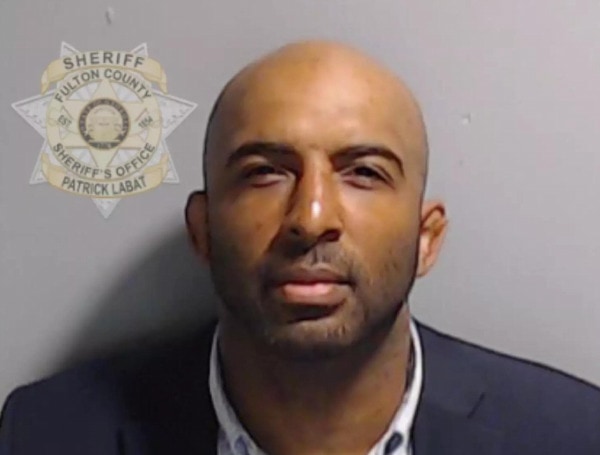A Georgia judge has declined to revoke former President Donald Trump’s co-defendant, Harrison Floyd’s, bond despite allegations of social media posts targeting witnesses.
Fulton County Judge Scott McAfee determined that while Floyd had technically violated his bond agreement, the posts did not amount to a threat or intimidation.
This decision has sparked controversy and raised questions about the nuances of social media and the boundaries of free speech.
Read: Federal Court Finds Maryland Handgun License Law Unconstitutional
The case against Harrison Floyd, a former leader of Black Voices for Trump, is part of a larger legal battle involving Donald Trump and 18 others. Floyd’s charges stem from allegations of attempting to convince Fulton County poll worker Ruby Freeman to make false statements about the 2020 election operations. He has pleaded not guilty to the charges.
Throughout the proceedings, social media posts by Floyd have come under scrutiny, with prosecutors claiming they demonstrate attempts to intimidate witnesses and communicate with co-defendants.
Prosecutors’ Request for Bond Revocation
Prosecutors, led by Fulton County District Attorney Fani Willis, sought to revoke Floyd’s bond, arguing that his social media posts violated the terms of his release. They alleged that Floyd attempted to intimidate co-defendants and witnesses through his online presence. Willis herself appeared in court to argue the state’s case, emphasizing the importance of upholding the conditions of release and preventing intimidation of witnesses.
Defense Arguments and the Judge’s Ruling
Floyd’s attorneys countered the prosecutors’ claims, asserting that their client’s posts were within the bounds of lawful political speech and did not amount to threats or intimidation.
They argued that tagging people involved in the case on social media was Floyd’s way of referring to them, rather than directly communicating with them. The defense maintained that none of Floyd’s posts posed a danger or violated the terms of his bond agreement.
Read: NY Dem Calls Trump’s Rhetoric “Dangerous” Then Immediately Calls For Him To Be “Eliminated”
After considering the arguments presented by both sides, Judge McAfee determined that while Floyd had technically violated his bond agreement, the violation did not warrant revoking his bond.
McAfee acknowledged that the case raised important questions about the impact of social media on legal proceedings and concluded that the bond agreement needed to be modified to address the nuances of online communication.
However, he emphasized that Floyd’s posts did not meet the threshold of threat or intimidation.
Controversy Surrounding the Decision
The judge’s decision to decline bond revocation in the face of alleged social media posts targeting witnesses has sparked controversy.
Critics argue that allowing Floyd to remain free on bond sends a message that such behavior is acceptable and may discourage witnesses from coming forward or cooperating fully.
They contend that the court should take a stronger stance against attempts to intimidate witnesses, particularly in high-profile cases.
On the other hand, supporters of the judge’s decision argue that it upholds the principles of free speech and prevents the suppression of lawful political expression.
They believe that Floyd’s posts were protected under the First Amendment and did not pose a genuine threat to witnesses or the integrity of the legal proceedings.
Read: Trump Leading Biden In New National Poll, Florida Gov. DeSantis Trailing Trump By 51 Points
They maintain that the court should be cautious about infringing on individuals’ rights to express their opinions, even if those opinions are controversial or critical of the case.
The Nuances of Social Media and the Law
The case of Harrison Floyd highlights the challenges that arise when social media intersects with the legal system. Social media platforms have become powerful tools for communication and expression, but their impact on legal proceedings is still being navigated.
The rapid dissemination of information and the potential for online harassment or intimidation pose unique challenges for judges and legal professionals.
In this case, the court had to grapple with determining the line between lawful political speech and behavior that crossed into intimidation or interference with the legal process.
The defense argued that tagging individuals in posts was merely a form of reference, while the prosecution contended that it constituted indirect communication that violated the terms of Floyd’s bond agreement.
This case serves as a reminder that the law is still evolving to address the complexities of social media in the context of legal proceedings.
Implications for Future Cases
The judge’s decision in Floyd’s case may have wider implications for future cases involving social media and the boundaries of free speech. Legal professionals and scholars will closely examine the reasoning behind the ruling and its potential impact on the interpretation of existing laws.
It may prompt discussions about the need for clearer guidelines or updated legislation to address the challenges posed by social media in the legal system.
Additionally, this case highlights the importance of ongoing education and awareness regarding the responsible use of social media for individuals involved in legal proceedings.
Android Users, Click To Download The Free Press App And Never Miss A Story. Follow Us On Facebook and Twitter. Signup for our free newsletter.
We can’t do this without your help; visit our GiveSendGo page and donate any dollar amount; every penny helps
